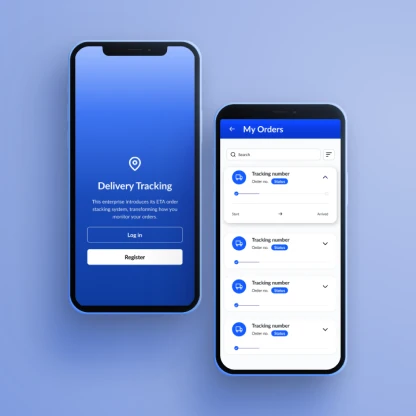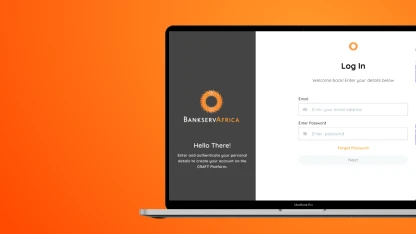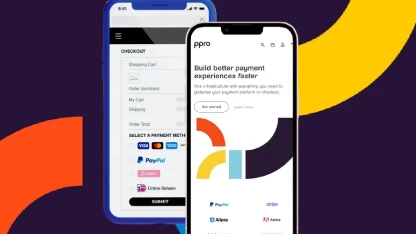Mobile App Development Company
Platform-enabled mobile app development with dedicated developers, real-time visibility, and transparent pricing for native iOS, Android, and cross-platform solutions.








































Years of Service
Client Renewal Rate
Apps Delivered
Ave. Onboarding
Mobile Apps We Build
From native iOS and Android apps to cross-platform solutions, we deliver mobile applications tailored to your business goals. Every engagement includes our platform for real-time visibility, transparent pricing, and seamless collaboration.
Native iOS apps built with Swift and SwiftUI. Access to latest Apple features, optimal performance, and seamless integration with iOS ecosystem.
Native Android apps built with Kotlin and Jetpack Compose. Reach billions of users with apps optimized for the Android ecosystem.
Cross-Platform Development
Build once, deploy to both iOS and Android with React Native or Flutter. Faster time-to-market without sacrificing quality.
User-centered design for mobile apps. From wireframes to high-fidelity mockups, we create interfaces users love.
Custom App Development
Tailored mobile solutions for unique business requirements. Custom features, proprietary integrations, and complex workflows.
Enterprise Mobile Apps
Secure, scalable mobile applications for enterprises. SSO, role-based access, system integrations, and compliance support.
Not sure which approach fits your needs? Get Expert Guidance
Platform-First Mobile App Development
Unlike traditional agencies that keep you in the dark, we provide platform-enabled custom app development that gives you real-time visibility, transparent pricing, and complete control over your mobile app project.
Real-Time Visibility
See exactly what your team is working on, track progress in real-time, and access all project documentation through our platform. No more waiting for status updates.
Transparent, Usage-Based Pricing
Pay only for the developers and resources you use each month. No hidden fees, no surprise invoices. Scale up or down as needed after your initial quarter.
No Vendor Lock-In
Month-to-month commitment after initial engagement. Don't like our service? Leave anytime. We earn your business every month through results, not contracts.
Platform + Services Model
Get the best of both worlds: software engineering orchestration platform combined with expert mobile app development services. Manage everything in one place.
Dedicated Mobile App Developers
Your team of iOS developers, Android developers, designers, and QA specialists work exclusively on your project. No shared resources or juggling priorities.
Nearshore Advantage
Leverage our South African development team for cost savings (50-60% vs US rates) without compromising quality. Same time zones, English-speaking, no communication barriers.
Trusted Mobile App Development Company
The Best Way to Build Mobile Apps
Choose the engagement model that fits your mobile app project. All models include our platform, transparent pricing, and real-time visibility.
Full-time mobile app teams working exclusively on your project, integrated into your processes and tools. Perfect for ongoing mobile app projects and continuous feature delivery.
Turnkey agile development teams delivering production-ready features. We handle planning, design, development, QA, and deployment, you focus on business outcomes.
Flexible, low-risk services delivered in weeks. Perfect for proof-of-concepts, technical assessments, code audits, QA automation setup, or migration support.
Not sure which model fits your needs? Let's discuss your project
How We Build Mobile Apps
Our proven mobile app development process combines agile methodology with platform-enabled collaboration. From discovery to post-launch support, you'll have full visibility every step of the way.
Discovery & Planning
Requirements gathering, Technical architecture planning, Platform selection (iOS, Android, cross-platform), and Project roadmap and sprint planning
Deliverable: Technical specification + project plan
UX/UI Design
Wireframing and user flows, High-fidelity mockups, Interactive prototypes, and Design system creation
Deliverable: Complete app designs ready for development
Development Sprint Cycles
2-week agile sprints, iOS and/or Android development, Backend API development, and Real-time progress tracking via platform
Deliverable: Working builds every 2 weeks
Quality Assurance & Testing
Functional testing on real devices, Performance testing, Security testing, and Beta testing with real users
Deliverable: Bug-free, tested application
App Store Launch
iOS App Store submission and approval, Google Play Store submission and approval, App Store Optimization (ASO), and Launch preparation
Deliverable: Live apps in both stores
Post-Launch Support & Maintenance
Bug fixes and updates, Performance monitoring, Feature enhancements, and OS compatibility updates
Deliverable: Maintained, updated mobile app
Modern Mobile App Development Stack
We offer the latest technologies to build scalable, high-performance mobile applications. Our teams have deep expertise across native and cross-platform frameworks.
Mobile Apps Across Every Industry
We've delivered mobile applications across diverse industries. Whether you're in healthcare, fintech, e-commerce, or beyond, we have the domain expertise to build apps that meet your industry's unique requirements.
Need mobile apps for your industry? Explore our case studies
We Build 250+ Types of Mobile Apps
From e-commerce and fintech to healthcare and logistics, we build mobile apps for every use case. Browse by category to see examples.
Mobile App Development Cost & Pricing
Mobile app development costs typically range from $50,000 for simple MVPs to $300,000+ for complex enterprise applications. The final cost depends on feature complexity, platform choice (native iOS/Android vs cross-platform), design requirements, and backend infrastructure.
At Scrums.com, we offer usage-based pricing with complete transparency.
You only pay for the developers, designers, and QA resources you need each month, no hidden fees, no vendor lock-in. Factors that impact mobile app development cost include...
01
Feature Complexity
Payment integrations, real-time sync, AI/ML features
02
Platform Choice
Native (iOS + Android) vs cross-platform (React Native, Flutter)
03
UX/UI Design
Custom animations, complex interactions, design system
04
Backend Infrastructure
API development, database architecture, cloud hosting
05
Third-Party Integrations
Payment gateways, analytics, marketing tools
06
Team Location
US vs nearshore (we offer 50-60% savings with ZA team)
Our Mobile App Development Success Stories
Mobile App Development FAQs
Everything you need to know about our mobile app development services and how we work.
Mobile app development costs typically range from $50,000 for a simple MVP to $300,000+ for complex enterprise apps. The cost depends on features, platforms (iOS/Android/both), design complexity, and backend requirements. We offer transparent, usage-based pricing, pay only for the developers you use.
Get a detailed cost breakdown →
A typical MVP takes 3-4 months to build and launch. A full-featured mobile app takes 6-9 months, while complex enterprise applications can take 9-12+ months. Timeline depends on feature scope, platform choice (native vs cross-platform), and team size. We work in 2-week sprints so you see progress continuously.
It depends on your target market. iOS first if you're targeting US/Western Europe markets or need higher revenue per user. Android first for global reach or emerging markets. Build both simultaneously with a larger budget, or use cross-platform development (React Native/Flutter) to launch on both platforms faster and more cost-effectively.
Read our iOS vs Android guide →
Native custom app development means separate codebases for iOS (Swift) and Android (Kotlin), offering best performance and access to latest platform features but costing more. Cross-platform development (React Native, Flutter) uses one codebase for both platforms, saving 30-40% on costs and time but with minor trade-offs.
Read our detailed comparison →
Yes. Mobile apps require ongoing maintenance for bug fixes, OS updates, security patches, and feature enhancements. We offer monthly maintenance plans starting at $2,000/month with proactive monitoring, fast response times, and no lock-in contracts.
Learn more about maintenance →
Yes. We've delivered 400+ mobile apps across healthcare, fintech, e-commerce, logistics, education, social networking, and more. We understand industry-specific requirements like HIPAA compliance for healthcare, PCI-DSS for fintech, and FedRAMP for government.
See our industry case studies →
Every engagement includes: UX/UI design, iOS and/or Android development, backend API development, QA testing, app store submission, and post-launch support. You also get access to our platform for real-time visibility, transparent time tracking, and project documentation, all included in your monthly rate.
Yes, absolutely. You own 100% of the code, designs, and intellectual property we create for your mobile app. Everything is delivered to you with full ownership and no restrictions.
Three key differences:
1. Platform-first approach with real-time visibility into your project
2. Transparent usage-based pricing with no hidden fees
3. No vendor lock-in, month-to-month after initial engagement.
Plus, our nearshore development team offers 50-60% cost savings compared to US-based agencies without sacrificing quality.
Yes. We can take over incomplete projects, maintain existing apps built by others, or modernize legacy mobile applications. We'll audit your current codebase, identify issues, and create a roadmap for completion or modernization.
Mobile App Development Blogs
Stay up-to-date with the latest trends, best practices, and insightful discussions in the world of mobile app development. Explore our blog for articles on everything from platform updates to development strategies.
Essential Mobile App Development Guides
Gain a deeper understanding of crucial topics in mobile app development, including platform strategies, user experience best practices, and effective development workflows with expertly crafted guides.























.png)

